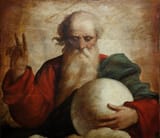This is why I hate immortals, unless they themselves are stagnant and unchanging and cursed never to diverge. Why do the elves have to be a thousand years old? Why not just 200? 300? We can’t really assume reliably how a thousand year old would act and behave, so why push it?
In my games, the average lifespans are:
Goblins = 30-40
Orcs = 50-60
Human = 65-85 (some human wizards extend their lives drastically; or are no longer human; 200-300+)
Halflings = 75-95
Dwarves = 115-145 (some turn to stone and live a lot longer; 200-300+)
Half-elves = 90 - 125
Elves = 150-175 (some turn into trees and live a lot longer; 200-300+)
High elves = 200-220 (incapable of producing with non-elves)
Gnomes = 300+ (they’re always humble old little people; like miniature wizards, and have acted as sages in the past)
Trolls = unknown (they sleep as stone to, and accumulate vast knowledge listening in on the land; seemingly 300+)
Dragons = unknown (like the trolls, the dragons can accumulate fast knowledge and fortunes and sleep for long periods; seemingly 300+)
Some forgotten inhuman beings tend to masquerade as sages or wizards to get across their age and wisdom. The most powerful wizards typically aren’t human, or elf, and are things like alien or angelic travellers from the stars, or dragons and other fae creatures like gnomes or trolls taking on the shape of wisemen.
>Makes the setting feel less stagnant and artificial
All fiction/fantasy is art/artificial at the end of the day. It’s always much too convenient for the sake of the story, the narrative. 99.99% of magic systems would never come about naturally. The fantasy world is some sort of pet project or simulation of some kind. All religion is like this, even; closer to a game.
In that sense, perhaps stagnation is the true intent of the world’s powers-that-be.
